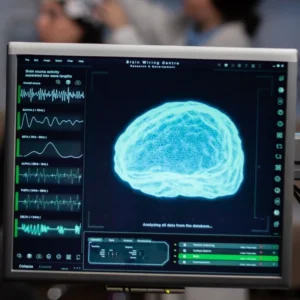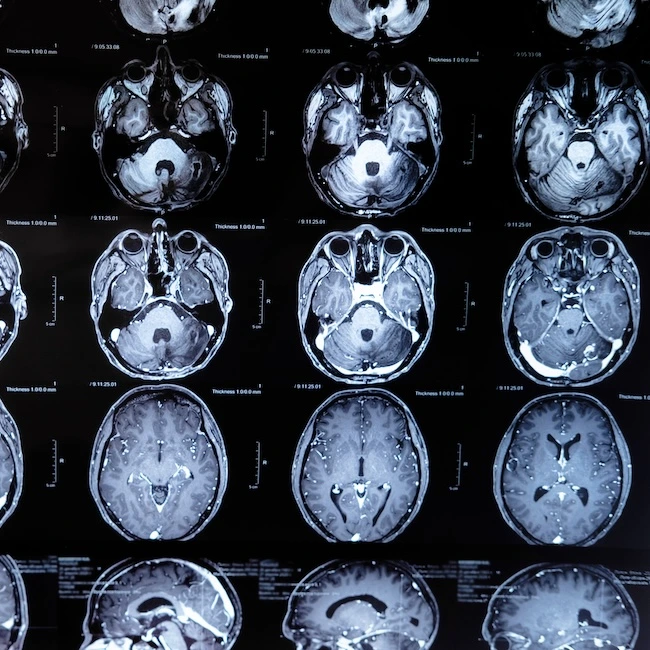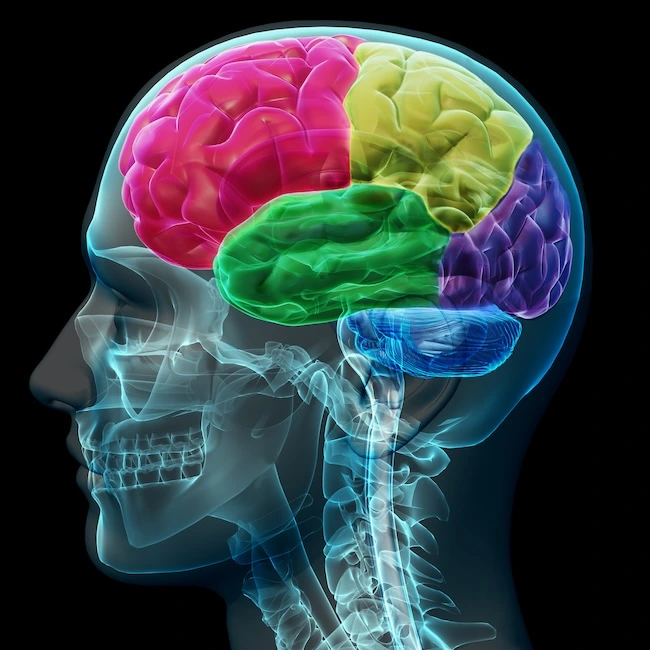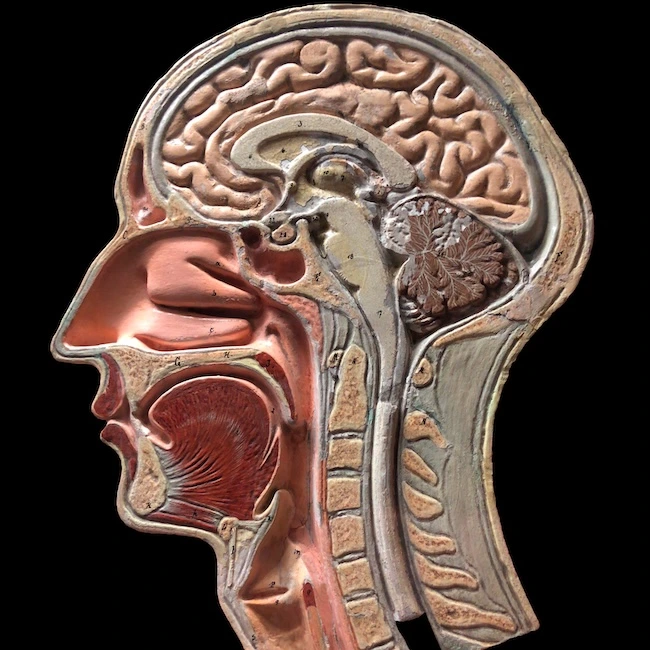Signs of a Brain Tumour: What You Need to Know

Understanding Brain Tumors
What is a Brain Tumor?
A brain tumor is a mass or growth of abnormal cells located within or near the brain. These tumors can be classified as benign (non-cancerous) or malignant (cancerous), impacting the brain’s function and overall health.
Brain tumours can develop in various regions of the brain, such as the cerebrum, cerebellum, and brain stem. Each location may lead to different symptoms and complications, depending on the brain functions affected.
Primary brain tumors originate from brain tissue itself. They are often the result of genetic mutations in the DNA of the cells. These tumors can arise in diverse areas of the brain, including the frontal lobe, temporal lobe, and occipital lobe.
Common types of primary brain tumors include gliomas, meningiomas, and pituitary tumors. Gliomas, for instance, originate from glial cells, which support and protect neurons, while meningiomas arise from the meninges, the protective membranes covering the brain and spinal cord. Pituitary tumors develop in the pituitary gland, affecting hormone production and regulation.
Secondary brain tumors, also known as brain metastases, occur when cancer cells spread to the brain from other parts of the body.
This process is known as metastasis, and it can occur with any type of cancer. However, lung cancer, breast cancer, and melanoma are among the most common cancers that metastasize to the brain. Secondary brain tumors are more prevalent than primary brain tumors and often indicate advanced-stage cancer.
Worried?
Request an Appointment with Dr Baker
Types of Brain Tumors
Primary Brain Tumors
Primary brain tumors originate from a growth of cells within the brain, often triggered by changes in DNA. These tumors can develop in various regions of the brain, such as the frontal lobe, temporal lobe, and occipital lobe. Each location can result in distinct symptoms and complications, depending on the brain functions affected.
Gliomas are one of the most common types of primary brain tumors. They originate from glial cells, which are crucial for supporting and protecting neurons. These tumors can disrupt the normal functioning of the brain and spinal cord, leading to a range of symptoms. Meningiomas, another type of primary brain tumor, arise from the meninges, the protective membranes covering the brain and spinal cord. These tumors can cause symptoms of a brain tumor, such as headaches and vision problems, due to increased pressure on the brain.

Pituitary tumors develop in the pituitary gland, a small but vital gland located at the base of the brain. This gland plays a significant role in regulating hormones that affect various body functions. Tumors in this area can lead to hormonal imbalances, causing symptoms like fatigue, weight changes, and mood swings.
The brain stem, a critical area controlling basic life functions, can also be affected by primary brain tumors. Tumors in this region might lead to severe symptoms, including difficulty breathing and swallowing, as well as problems with balance and coordination. These warning signs should not be ignored, as they can impact the whole body and require immediate medical attention.
Symptoms of brain tumors vary widely depending on the tumor’s location and size. Common symptoms include persistent headaches, seizures, and changes in personality or behavior. Some individuals may experience sinus pain or difficulty with certain functions, such as speaking or walking. Recognizing the common symptoms of brain tumours, such as headaches and seizures, is crucial, and individuals should consult a doctor if they experience these symptoms.
Diagnosing brain tumors involves a range of imaging tests, such as CT scans, MRI scans, and PET scans. These tests help doctors determine the size, location, and type of tumor, providing critical information for developing a treatment plan. In some cases, a biopsy may be necessary to confirm the diagnosis and guide treatment decisions.
Understanding the nature of primary brain tumors and their impact on healthy cells is essential for effective management and treatment. By recognizing the symptoms and seeking timely medical intervention, individuals can improve their chances of successful treatment and maintain a better quality of life.
Secondary brain tumors
Secondary brain tumors, also known as brain metastases, occur when cancer cells spread to the brain from other parts of the body. This process can happen with any type of cancer, but it is most common with lung cancer, breast cancer, and melanoma. As these cancer cells invade the brain, they can lead to the growth of new tumors, which may increase intracranial pressure and result in symptoms similar to those caused by primary brain tumors.
These secondary brain tumors can affect various parts of the brain, including the pineal gland, leading to a range of complications. The presence of these tumors can exacerbate symptoms such as headaches, seizures, and changes in personality or behavior, as the brain struggles to cope with the increased pressure from the growing masses.
Understanding the nature of secondary brain tumors and their potential impact on brain function is crucial for effective diagnosis and treatment. By recognizing the symptoms and seeking timely medical intervention, individuals can improve their chances of managing brain cancer and maintaining a better quality of life.
Risk Factors and Prevention

Risk factors for brain tumors
Risk factors for primary brain tumors include exposure to radiation, family history, and certain genetic syndromes. While there is no convincing evidence linking cellphone use to brain tumors, medical conditions such as neurofibromatosis can increase the risk of developing these tumors.
Other symptoms associated with brain tumors may include balance problems, headaches, and weakness, which can significantly impact everyday matters. Recognizing these symptoms early and understanding the potential risk factors is crucial for timely diagnosis and effective management of brain tumors.
Can brain tumors be prevented?
While there is currently no definitive method to prevent brain tumors, individuals with an elevated risk may consider undergoing periodic screening tests. According to the American Brain Tumor Association, these screenings are not a form of prevention but can facilitate the early detection of tumors, potentially improving treatment outcomes.
Early detection through screening might identify a tumor when it is still small, increasing the likelihood of successful treatment. For those concerned about their risk, it is advisable to consult a healthcare professional or arrange an appointment with a brain surgeon like Dr. Baker to discuss personalized screening options and potential interventions.
Brain Tumor Symptoms
Common symptoms
Brain tumours can vary significantly in their symptoms depending on the specific area of the brain affected. Common symptoms of a brain tumor include persistent headaches, which may feel like tension headaches, and seizures. Individuals may also experience weakness throughout the body, leading to trouble walking or maintaining balance.
As the tumor grows, it can impact various functions of the nervous system. For instance, patients might notice memory problems or changes in personality and behavior. Some may feel drowsy or experience fatigue and vomiting, which are symptoms caused by the increased pressure within the skull.

Tumors affecting the parietal lobe can lead to difficulties with spatial awareness and vision problems, while those in the cerebellum might cause coordination issues. A brain tumor can also disrupt blood vessels, leading to pain or numbness in different parts of the body. As these symptoms worsen, they can significantly affect a person’s quality of life.
The brain is divided into four lobes, each responsible for different functions. Tumors in any of these areas can lead to distinct symptoms. For example, a tumor in the frontal lobe may alter personality and decision-making, while one in the occipital lobe could cause vision difficulties. Understanding these symptoms is crucial for early detection and treatment of brain tumors.
Symptoms by Location
Frontal lobe tumor symptoms
Frontal lobe tumors can lead to significant changes in personality, mood, and behavior. Individuals may experience difficulty with movement, including trouble walking. These tumors often result in challenges with speaking and decision-making, impacting everyday matters and overall quality of life.
Temporal lobe tumor symptoms
Tumors in the temporal lobe are known to affect memory, hearing, and speech. They may also trigger seizures and cause changes in personality. Additionally, individuals might struggle with spatial awareness and have difficulty recognizing objects, which can interfere with daily activities and social interactions.
Advanced Brain Tumor Symptoms
Symptoms of increased pressure on the brain
Increased intracranial pressure due to a growing tumor can cause debilitating headaches, nausea, and vomiting. This pressure may also lead to seizures, confusion, and even loss of consciousness. It is crucial to address these symptoms promptly to prevent further complications and maintain brain function.
Diagnosing Brain Tumors
Diagnostic tests for brain tumor symptoms
Diagnosing brain tumors involves a variety of imaging tests such as CT scans, MRI scans, and PET scans. These tests are instrumental in determining the size, location, and type of tumor present. In some cases, a biopsy may be performed to confirm the diagnosis and guide appropriate treatment options.
Treatment Options for Brain Tumors
Surgery
Surgery is often the primary treatment for brain tumors, aiming to remove as much of the tumor as possible. This procedure can alleviate symptoms and enhance the patient's quality of life. In some cases, surgery is essential to relieve pressure and prevent further damage to brain tissue.
Radiation therapy
Radiation therapy utilizes high-energy rays to target and kill cancer cells. It is particularly useful for treating brain tumors that are not amenable to surgical removal. Additionally, radiation therapy can help reduce symptoms and improve the patient's overall well-being.
Chemotherapy
Chemotherapy involves the use of drugs to eliminate cancer cells. It is effective in treating brain tumors that have metastasized to other parts of the body. Chemotherapy can also play a role in symptom management and improving the patient's quality of life.
Living with a Brain Tumor
Coping with symptoms and treatment
Living with a brain tumor presents numerous challenges, both physically and emotionally. It is vital to collaborate with a healthcare team to manage symptoms and treatment-related side effects. Support from family and friends is invaluable in navigating the complexities of living with a brain tumor.
Getting Support
Resources for patients and families
Receiving a brain tumor diagnosis can be overwhelming, and it’s essential to have a support system in place. There are various resources available to help patients and their families cope with the emotional, physical, and financial challenges that come with a brain tumor diagnosis.
- Counseling and Therapy: Many hospitals and cancer centers offer counseling and therapy services to help patients and their families deal with the emotional impact of a brain tumor diagnosis. These services may include individual counseling, group therapy, and family therapy. Speaking with a professional can provide a safe space to express feelings, manage stress, and develop coping strategies.
- Support Groups: Joining a support group can connect you with others who are going through similar experiences. Support groups provide a safe space to share feelings, ask questions, and learn from others who have been in your shoes. These groups can offer emotional support, practical advice, and a sense of community during a challenging time.
- Online Resources: There are many online resources available to provide information, support, and connection for brain tumor patients and their families. Reputable organizations such as the American Brain Tumor Association, the National Brain Tumor Society, and the Brain Tumor Foundation offer a wealth of information on brain tumor symptoms, treatment options, and coping strategies. These websites also provide forums and online support groups where you can connect with others.
- Financial Assistance: The costs associated with brain tumor treatment can be significant, but there are organizations that offer financial assistance to help ease this burden. Programs like the HealthWell Foundation, the Patient Access Network Foundation, and the Cancer Financial Assistance Coalition provide grants and financial aid to cover medical expenses, travel costs, and other related expenses. It’s important to explore these options and seek help if needed.
Staying Informed
Latest research and developments on brain tumors
Staying informed about the latest research and developments on brain tumors can help you make informed decisions about your care and stay up-to-date on the latest treatment options.
- Clinical Trials: Clinical trials are research studies that test new treatments, medications, or procedures to improve patient outcomes. Participating in a clinical trial can provide access to cutting-edge treatments and the opportunity to contribute to medical research. Discuss with your healthcare provider whether there are any clinical trials that might be suitable for your condition.
- New Treatments and Therapies: Researchers are continually working to develop new treatments and therapies for brain tumors. Some promising areas of research include immunotherapy, which harnesses the body’s immune system to fight cancer cells, and targeted therapy, which focuses on specific molecules involved in tumor growth. Gene therapy is another innovative approach being explored to treat brain tumors at the genetic level.
- Advances in Surgical Techniques: Advances in surgical techniques, such as minimally invasive surgery and robotic surgery, are helping to improve outcomes and reduce recovery time for brain tumor patients. These techniques allow for more precise removal of tumors with less damage to surrounding brain tissue, leading to better post-surgical recovery and quality of life.
- Genetic Research: Genetic research is helping us better understand the causes of brain tumors and develop more effective treatments. For example, researchers have identified several genetic mutations that are associated with an increased risk of developing certain types of brain tumors. Understanding these genetic factors can lead to more personalized treatment plans and potentially better outcomes for patients.
By staying informed about the latest advancements in brain tumor research and treatment, you can make empowered decisions about your care and explore new options that may improve your quality of life.
Dr. Abdul Baker - An Expert Neurosurgeon in Texas
Every neurosurgery has its complications; thus, a patient must choose the best neurosurgeon for himself. Dr. Abdul Baker is one of the most experienced and qualified neurosurgeons in Texas, treating patients for more than 16 years. People in Sherman, Plano, and nearby areas trust him for every kind of neurosurgery due to his surgical procedures’ 100% success rate. You may visit him if you need any consultancy or treatment regarding your brain and spine disorders.
More from our Blog


Dr. Baker specializes in neurosurgery, neurosurgical spine surgery, neurotrauma, brain tumors, spinal tumors, and peripheral nerve damage treatment.









